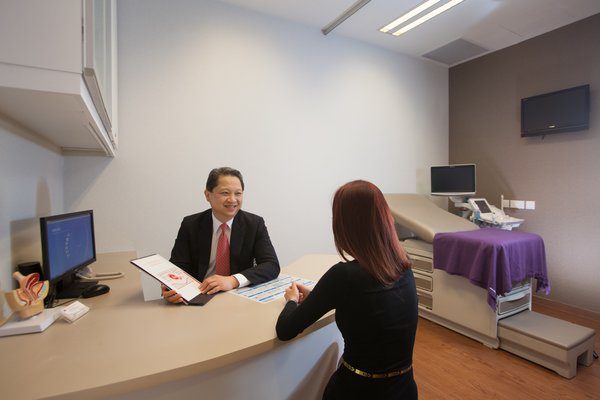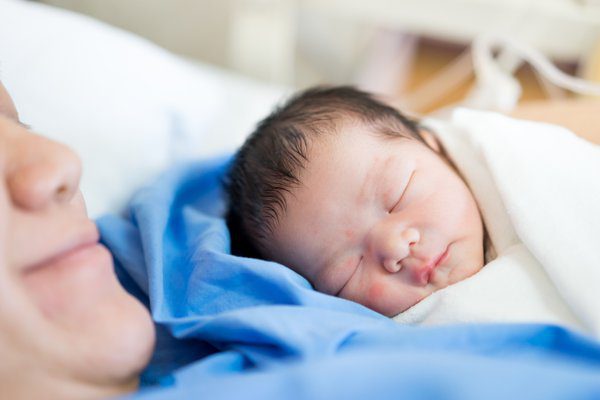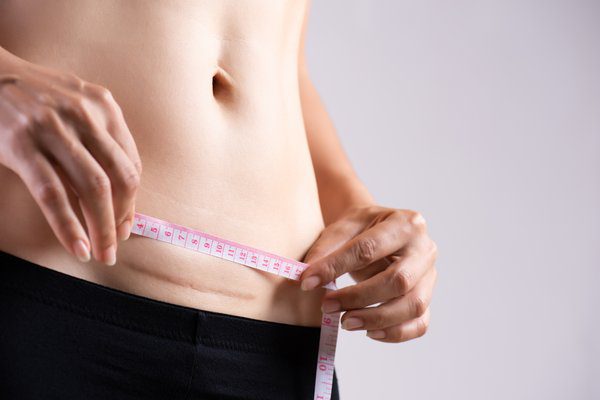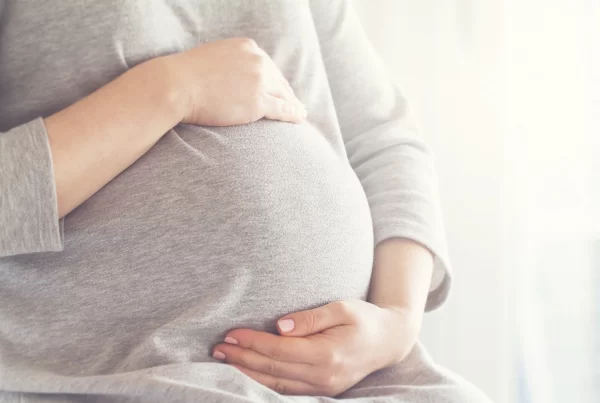Fibroids are a common problem among many ladies, sometimes requiring treatment, other times not. But what if the fibroids exist during pregnancy? Would they affect the pregnancy? Dr Henry Cheng from Astra Women’s Specialists, a gynaecologist trained in high-risk pregnancy, sheds some light on this issue.
1. What happens when I have fibroids during pregnancy?
In general, having fibroids in pregnancy makes the pregnancy more complex and requires high risk management. More meticulous and closer monitoring is needed as there can be many associated complications. As such, the antenatal care of these pregnancies should be managed with a specialist experienced in high risk care.

The effect of fibroids in pregnancy is dependent on the size and location of the fibroids within the womb. It also depends on what stage of pregnancy you are at. For example, in the first trimester of pregnancy, existing fibroids can grow faster than your baby, which can lead to pain and more severely, can cause threatened miscarriage.
After 16 weeks of pregnancy, your baby can grow faster than the fibroids. As a result, the fibroids can be stretched by the growing uterus so much that they actually tear apart slowly and result in more pain.
2. Why is there an increased risk for miscarriage if fibroids are present during pregnancy?
Fibroids can reduce blood supply to the particular area of the uterus,and may also cause the uterine wall to be hardened. Yet, the uterus is supposed to expand as pregnancy progresses. To decrease the risk of miscarriage, your gynaecologist may use hormones and other medications to improve blood supply to the uterus and soften its walls.
However, if the fibroids are very big, they can still affect the placenta’s growth and consequently the baby’s growth.
3. Will fibroids cause pain during my pregnancy and can I take painkillers?

Some mothers do experience some pain or discomfort due to:
- Hardening of the uterine walls caused by the fibroids
- Pain resulting from their fibroids being slowly torn apart as the pregnancy progresses and the uterus expands
- Large fibroids e.g. those more than 5-6cm in size as these fibroids can push into the abdominal space, and later even up into the stomach and chest
Painkillers may be prescribed to manage the pain, with Panadol being the popular option as it is very safe for the unborn baby and is also effective in providing pain relief. Of course, it would be avoided in women who are allergic to the medication.
4. What other pregnancy complications may develop due to fibroids?
In the third trimester, fibroids can cause extra pressure on the bladder and the intestines, which could aggravate common pregnancy problems like not being able to hold your bladder for long, frequency of urine, or even suffer constipation.
There is also a risk for premature labour, but the risk can be reduced by taking medications.
5. Must I deliver by C-section if I have fibroids?

It is not a must to deliver via Cesarean-section if you have fibroids. Your obstetrician will recommend the safest approach after determining the location of the fibroids with ultrasound scanning.
If a large fibroid is found in the lower end of the uterus, near the cervix, it might prevent the baby’s head from descending naturally, and an elective Caesarean will then be necessary. If there is no such obstruction, natural delivery can be possible.
6. Is the C-section process the same regardless of whether I have fibroids?

Caesarean section can be more complicated when fibroids are present. For example, if fibroids are covering the lower segment of the uterus (where the c-section cut is typically made), your obstetrician might have to change the placement of the cut to go round the fibroid i.e. the C-section cut might be at a different place compared to the usual. This could lead to a higher chance of bleeding.
Also, the presence of fibroids may affect the contraction of the uterus after C-section, which could potentially increase the risk for post-partum haemorrhage. Hence, it is important in such cases, that an obstetrician trained in high-risk pregnancies is managing the pregnancy.
7. Can my fibroids be removed during the delivery if I undergo a C-section?
Fibroids are usually NOT removed during a Caesarean section as there is a danger of excessive bleeding when removing the fibroids. Also, if a myomectomy (i.e. removal of fibroids) is performed during a C-section, the former cannot be claimed under Medisave.
8. Should I remove my fibroids before getting pregnant then?

If possible, it is recommended that ladies with fibroids get pregnant with their fibroids intact and only remove them upon completing their family plans. This is because the fibroids can get torn to much smaller sizes during a pregnancy, as a result of the uterus expanding.
For ladies who have successfully gotten pregnant once with fibroids, it is highly recommended that they get pregnant again as soon as possible (if they’re planning for a second child), before their fibroids grow back in size again. Remember, fibroids can grow much faster and bigger than before.
Dr Henry’s Place of Practice
Astra Women’s Specialists
38 Irrawaddy Road #05-21/22
Mount Elizabeth Novena Specialist Centre
Singapore 329563
Tel: +65 6353 3878
Astra Women’s Specialists Centre
Blk 502 Bishan Street 11
#01-356
Singapore 570502
Tel: +65 6552 7377



